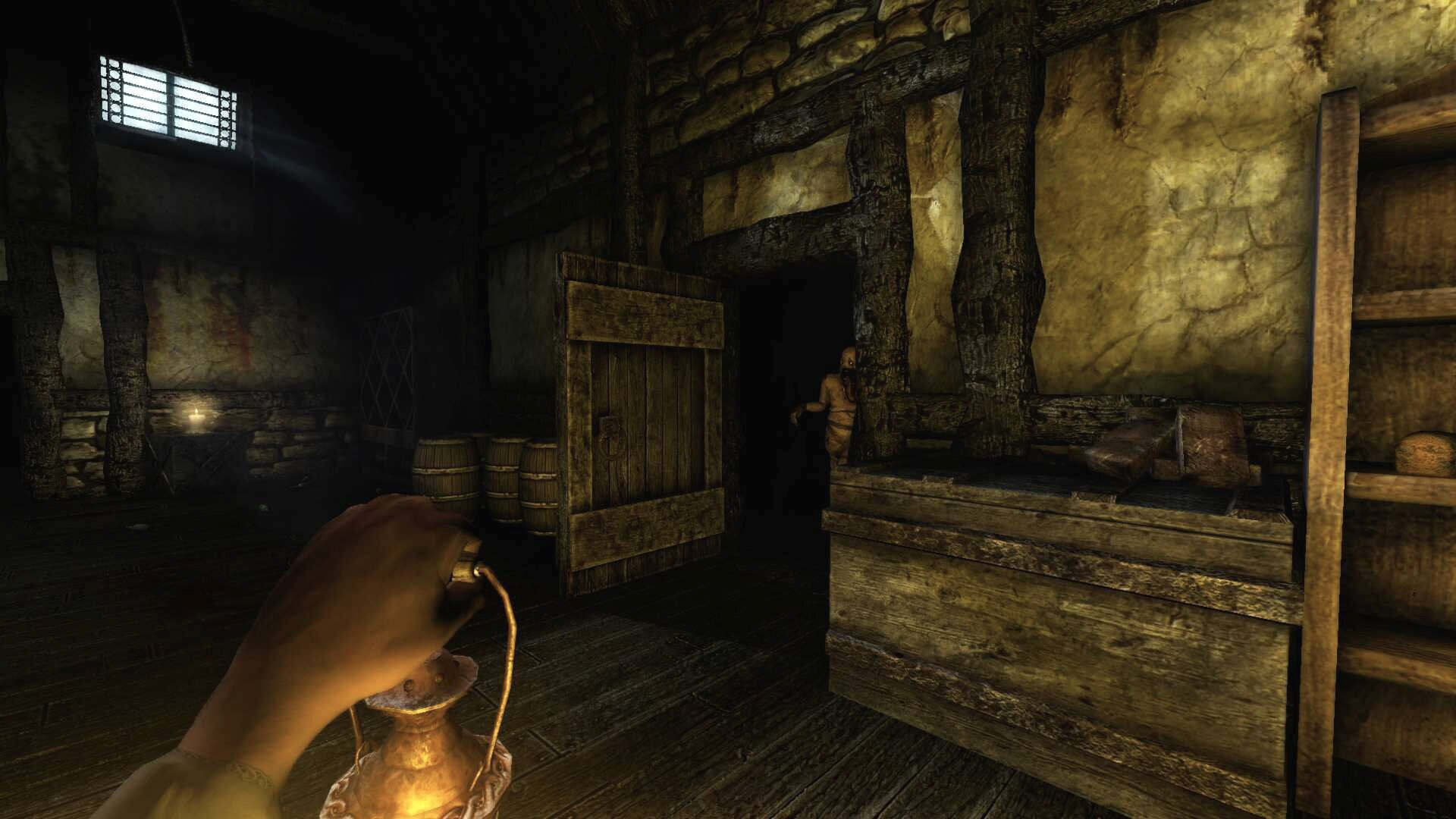A Redemption for Monsters? Amnesia: The Dark Descent and Player Choice
Blake Reno, Contributing Editor
“Don’t forget . . . some things mustn’t be forgotten.” So begins a game that came almost out of nowhere to scare the pants off of numerous gamers: Amnesia: The Dark Descent. The player controls Daniel, who has given himself amnesia (via a potion) shortly before the player is thrust into the game’s narrative. As the player begins the game, they see fleeting images of the castle and hear Daniel talking to himself, concluding with “I am Daniel,” before the screen goes black and the player takes control. The fleeting images of the castle as Daniel fights to forget what he has done are representative of Daniel not only forgetting his past, but also giving up control to you, the player.
But is Daniel a different person under the player’s control? Conventionally, gamers are pushed towards a “redemptive” or “good” choice for the character they control, but Amnesia asks the player if they are even fit to make those very choices for someone else. The player is left with a note, written by the “past” Daniel, instructing him to descend into the depths of the castle and kill someone named Alexander. Amnesia seems simple in what it asks of its players: explore the castle while avoiding detection and death at the hands of its monsters, solve puzzles, pick up notes, and experience auditory flashbacks that fill in Daniel’s backstory. But what Amnesia ultimately asks of its player once they glean enough information from these notes and flashbacks is something more dire: the task of judging the player-character, of deciding whether or not he can be redeemed.
The short version of Daniel’s story: after taking a mysterious orb from a tomb in the Sahara desert, he begins to be hunted by the “Shadow,” an unknown presence that manifests itself through fleshy growths. Alexander promises Daniel a way to escape the “Shadow” by capturing criminals and torturing them within the confines of the castle to gather “vitae” (a kind of life force or life-energy). However, Daniel becomes aware that these people aren’t actually criminals, drinks the potion, and in the first note to himself requests that he “redeem us both.” On the surface, this might lead one to believe that Daniel is referring to the Daniel before and after drinking the amnesia potion. But below the surface, Frictional Games — the studio who developed the game — is asking the player to redeem Daniel from his monstrous past.
Examining Daniel’s in-game model, he’s actually only rendered as the arm that carries the lantern. Daniel no longer exists as “Daniel.” The player has now become Daniel. Frictional has placed the player as the “new” Daniel who has forgotten his past. While Daniel decided to drink the amnesia potion, it’s now the player who must survive the monsters and horrors of the castle. However, just as the potion is only a temporary means of forgetting, the actions of hiding and building barriers are only a temporary means of stopping the monsters. The player has no means of defending themselves in any definitive way and is constantly being assaulted by the very nightmare Daniel created within the castle.
The buildup of Daniel’s backstory through notes comes to a climax in the auditory flashbacks in the castle’s torture chambers. The player themselves must now walk into each of these chambers and experience what Daniel did to innocent people before he attempted to erase his past via the potion. If it wasn’t already clear, it should be now. The player is controlling the monster. In other words, the player was tricked into supporting the monster’s quest for redemption.
In the final confrontation with Alexander, the player is ultimately given a choice similar to those trying the defendants in the Nuremberg Trials. The player has three options: let Alexander and Daniel die at the hands of the “Shadow,” defeat Alexander and allow Daniel to continue to live his life, or, if the player did the earlier sidequest with Agrippa, throw Agrippa’s head into the portal to the other dimension, let the “Shadow” kill Alexander, and believe Agrippa’s promise to “save” Daniel from the “Shadow.”
By taking control of Daniel, has the player become an accessory to his atrocities, even though they preceded the game’s action? Normally, games push one towards the “good” ending by offering additional items or creating likeable characters. Amnesia overturns this trope by having you play as someone without a past. This allows the conventions of the survival-horror genre to kick in, giving the player the idea that the character they are controlling is worthy of life. The game gives the player a time limit before Alexander escapes to make their decision and forces the player to make a snap answer to the question “Does Daniel deserve redemption?”
The genius of how Frictional Games has designed this final confrontation becomes clear in the Agrippa ending, which essentially involves the player giving up their right to judge. Agrippa promises to save the player, but he knows what Daniel did before the player became Daniel. If the player chooses to save Agrippa, the ending is left open. The player ultimately doesn’t know if Agrippa comes back to save them. Essentially, with that decision, the player is saying, “I am not fit to decide Daniel’s fate.” Ultimately, Amnesia turns the idea of player choice on its head by asking important questions about it: Who are we to determine the fate of characters in a story? Should players be given this power? If so, can their choice really redeem a monster? And why are games so attracted to the pursuit of redemption in the first place?





